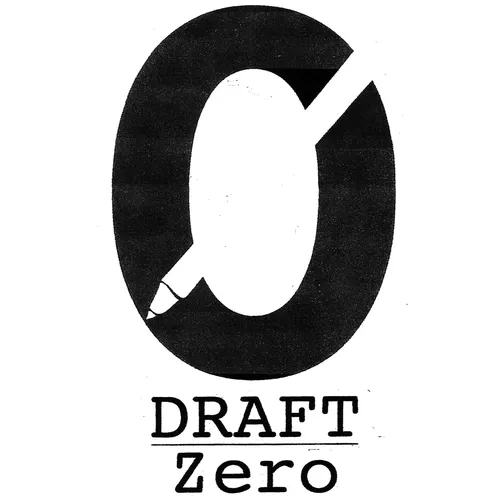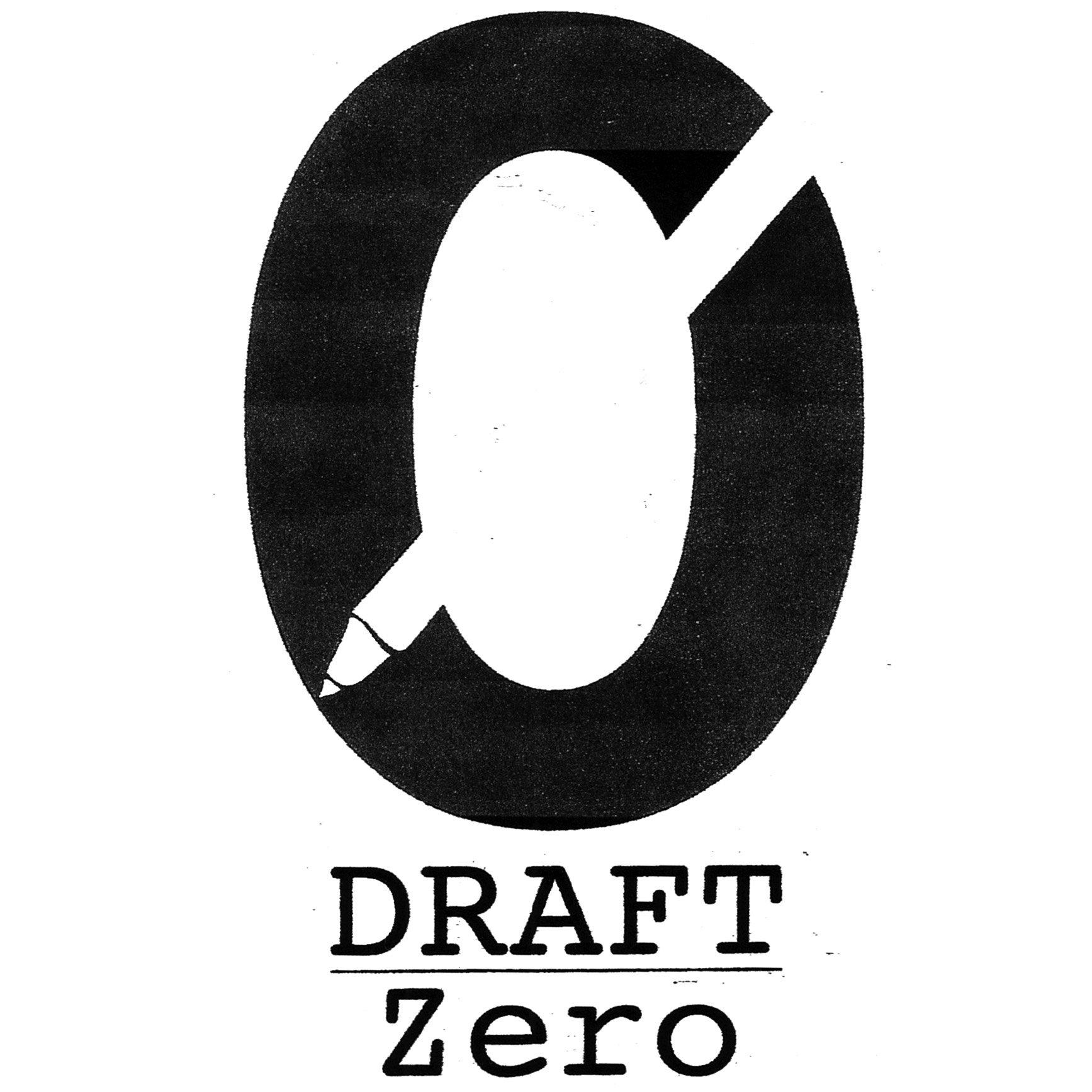
Draft Zero: a screenwriting podcast
Two emerging screenwriters – Chas Fisher and Stuart Willis – try to work out what makes great screenplays work. Discovering what it takes by analysing what successful writers put on the page.
- Update frequency
- every 34 days
- Average duration
- 107 minutes
- Episodes
- 100
- Years Active
- 2015 - 2025

DZ-61: Unfilmables and Unscriptables 2 - Moments of Awe
How can unfilmables help you create those cinematic moments of awe?
In this second part of our series on unfilmables, Chas and Stu continue their deep dive into how writing the “unfilmable” can enhan…

DZ-60 Unfilmables and Unscriptables 1 - Engaging imagination
How can unfilmables enhance the experience of your script?
AKA Why your screenwriting guru is wrong
In this episode, Chas and Stu deep dive into the controversial area of “unfilmables” — those allege…

DZ-59: Avengers Endgame - Ending Character Journeys
One day, Chas saw Avengers: Endgame for the second time and wrote a review on Letterboxd. In particular, he had issues with how little he perceived the characters of Cap and Tony changed within the f…

DZ-58: Game of Thrones - Character Exposition
How can you let your characters tell us how they feel?
In watching Season 7 (and the first three episodes of Season 8) of Game of Thrones, Stu noticed that there were lots of scenes where characters …

DZ-57: Backmatter - Aesthetics and Forgiveness in Writing
How can you best articulate your ideas?
It is time (in fact, well past time) for our semi-annual #Backmatter episode. For the uninitiated, this is an episode where Stu and Chas discuss career and cra…

DZ-56: Character Motivations (Part 2)
Workshopping ways to fix character motivations.
In this second part of their exploration of character motivations, Chas and Stu dive into what makes “BAD” screenplays NOT work. They examine at momen…

DZ-55: Character Motivations (Part 1)
In part 1 of this 2-part episode, Chas & Stu look at examples of good character motivation. We’ve all watched movies where we don’t believe the motivation of a character or characters. We may have e…

DZ-54: Thematic Sequences
How does removing character and plot questions force your audience to engage with theme?
Chas and Stu are joined, once again, by the inestimable Stephen Cleary. This episode is a spiritual sequel to …

DZ-53: Antagonists! 5 - vs Audience
What if there is no antagonist?
It’s time. The Epic Deep Dive(TM) into Antagonists has reached its shuddering conclusion. And for this Part V - by choosing films that have no obvious singular antagon…

DZ-52: Antagonists! 4 - vs Systems
How do systems pressure your characters to change?
This is Part Four (!!) of our Five Part Epic Exploration into antagonists forces and sources of conflict. In this episode we explore "system/world/s…

DZ-51: Antagonists! 3 - vs Nature
What changes in your story if your antagonistic forces can’t be bargained with?
In this Part Three of our Five Part Epic Exploration™ into antagonistic forces (and sources of conflict), Chas & Stu ex…

DZ-50: Antagonists! 2 - vs Self
How can characters be their own antagonist?
In Part Two of our Five Part Epic Exploration™ into antagonists, Chas & Stu take a look at "vs self" stories. Stories where the protagonist (or main charac…

DZ-49: Antagonists! 1 - vs Humans
What makes a strong human antagonist?
Prompted by a listener (and patron of the podcast) question, Stu and Chas dive into antagonistic forces. And because Draft Zero does not do anything by halves, t…

DZ-48: One-Shot - Blade Runner 2049 – Agency vs Choice
Can your characters be given choices and yet still be deprived of agency?
To kick off 2018, Chas and Stu take a deep dive into one of their favourite movies of 2017: Blade Runner 2049. However, they …

DZ-47: Backmatter - A Lost Jedi, White Knighting, and Writers-On-Set
Will Director Stu allow Writer Chas on his set?
Following our annual wrap up in 2017, we’ve decided to once again explore what craft issues/lessons we can garner from the latest Stars, namely Episode…

DZ-46: Structure & Point of View
What questions do you want your audience asking at any given time?
Waaaaaaaaaay back in DZ-05, Stu and Chas examined how shifting narrative point of view (i.e. what the audience knows in relation to …

DZ-45: Arguments of the Scene
How can you dramatise your theme on a scene level?
As part of their ongoing exploration of scene-work, Stu and Chas apply their earlier thinking on theme and character worldview to individual scenes.…

DZ-44: Marvel - First Acts and Establishing Characters
How can your first act effectively establish your character journey?
First Acts are hard. They have to set so much in motion, especially setting up characters. To help them understand how to write ef…

DZ-43: Driving Sequences - Character and Plot Intensity
What gives your sequences their intensity?
Chas and Stu are joined for the fourth time by the inestimable Stephen Cleary - this time to take a deep dive into sequences. A real deep dive. A 3+ hour de…

DZ-42: One-Shot - Split, Character Worldview & Macro POV
What screenwriting lessons can be we learn from SPLIT?
In our first (and perhaps last) one-shot, we take a close look at the M. Night Shyamalan's SPLIT. Rather than having one topic with many example…